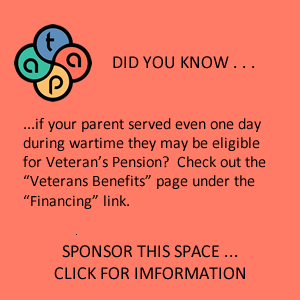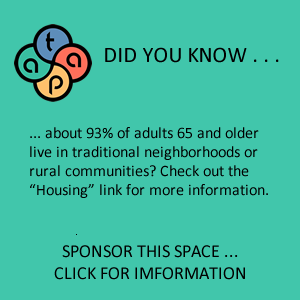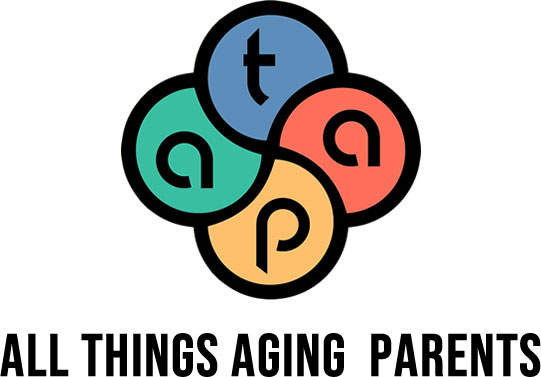Note: This is an overview of VA benefits, and is by no means comprehensive. This information is geared for older veterans (age 65 and older) only. The first three resources listed below are particularly helpful to start gathering information. (Be sure you check the date of all VA information – pages older than October 2018 may have outdated information.) All costs mentioned are for 2024.
There can be a lot of confusion about VA benefits. Veterans or surviving spouses of veterans may be eligible for various programs and not even be aware. They may not know what these benefits are, not know if they are eligible, or in some cases, they may have been wrongly told they do not qualify.
Most (but not all) VA benefit programs have two eligibility requirements: 1) a qualifying service record (which means the person was discharged from active, full-time military service without a dishonorable discharge), and 2) at least one day of service during wartime.
| Name of War | Dates |
|---|---|
| World War II | Dec. 7, 1941 – Dec. 31, 1946 |
| Korean War | June 27, 1950 – Jan. 31, 1955 |
| Vietnam War | Aug. 5, 1964 – May 7, 1975 (Start date 02/28/61 if “in-country” before 08/05/64) |
| Gulf War | Aug. 2, 1990 – future date TBD |
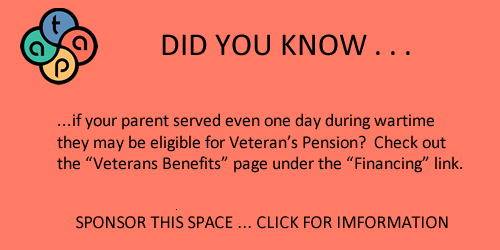
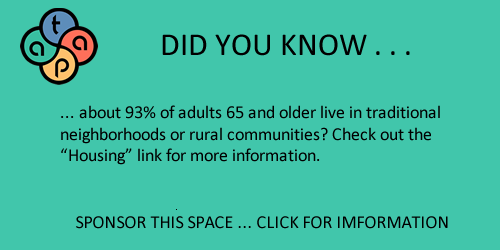
If you are confused about whether or not you qualify for VA benefits, we encourage you to talk with a Veterans Service Officer in your area. You can locate them by typing into your Internet browser “Veterans Service Officer” plus your zip code.
The VA pension benefit is a tax-free, needs-based monthly payment offered to eligible veterans. There are 3 levels of benefits:
- Basic Pension (lowest level)
- Housebound
- Aid and Attendance
To qualify for the basic pension, the veteran must meet these requirements:
- A qualifying service record (at least 90 days of active military service with at least one day of wartime service, no dishonorable discharge)
- Age or disability criteria (be age 65 or older, or have a permanent and total nonservice connected disability, or be receiving SSDI or SSI benefits)
- Adjusted yearly income below the maximum annual pension rate (see “Income Limits” below)
- Assets do not exceed the countable limitations (see “Net Worth Limits” below)
To qualify for the housebound pension, the veteran must meet all requirements for the basic pension and be “substantially confined to [his or her] immediate premises because of permanent disability.”
To qualify for the pension with aid and attendance, the veteran must meet all requirements for the basic pension and be dependent on others for care and survival for any of these reasons:
- Need someone’s help to perform Activities of Daily Living (ADLs) at home or in assisted living
- Be bedridden
- Be a patient in a nursing home due to mental or physical incapacity
- Be blind
Survivor's Pension: A veteran’s surviving spouse or dependent child may be eligible to receive any of the three levels of pension. Divorced spouses are usually not eligible for benefits. In order to be eligible, the surviving spouse or dependent must prove that the veteran had a qualifying service record and meet the income and net worth limits.
Determining your eligibility for VA benefits (as with Medicaid) can be quite confusing. We recommend you contact a professional benefits adviser (see below).
2024 Basic / Housebound / Aid and Attendance Max. Annual Pension Rate (MAPR)
| Veteran Family Status | Basic Pension | Housebound | Aid & Attendance |
|---|---|---|---|
| Veteran only | $16,551 | $20,226 | $27,609 |
| Veteran with spouse* or dependant child** |
$21,674 | $25,348 | $32,729 |
| Surviving spouse*** / death pension |
$11,102 | $13,568 | $17,743 |
*Presumes the spouse is not also a veteran
**Add $2,831 for each additional dependent child
***Add approximately $3,427 for first
dependant, $2,831 for each additional dependant.
Income Limits: The joint countable income of a veteran and their spouse must be less than the pension amount for which they are eligible (see chart above). However, the VA allows applicants to deduct all of their unreimbursed medical expenses (for the veteran and spouse or dependent child) that exceed 5% of the MAPR (Maximum Annual Pension Rate).
Medical expenses include the cost of care in a skilled nursing facility, assisted living (not room and board), adult day centers, and at home. Medicare and other insurance premiums and prescriptions not covered by insurance are also included. Income from SSI and welfare benefits are not included as countable income.
Net Worth Limits: A veteran’s net worth includes assets such as savings, annuities, stocks, bonds, and real estate (other than a residence). Countable assets include cash, savings, bonds, businesses, annuities, land (other than the primary home), and collectables. Noncountable (exempt) assets include a home (if the veteran or survivor lives in it), a vehicle, household furnishings, and clothing. To qualify for pensions the veteran’s net worth must be under $155,356. (This is a change to VA policy that was introduced in October 2018.) Another part of the new policy is that a veteran’s income (after deducting unreimbursed medical expenses) will be added to their net worth.
One additional part of the new VA policy is a 3-year look-back period. If a veteran has given away considerable assets in order to qualify for a VA pension (or sold them for less than market value), VA discovery will disqualify them for the pension for a period of time.
Example: Tracy is a veteran with no spouse or dependent who is eligible for aid and attendance, and could receive up to $27,609 annually. If Tracy’s countable income is $10,000, that amount is deducted from the pension rate, so (s)he is eligible to receive $17,609 in pension. Because the VA allows applicants to deduct all of their unreimbursed medical expenses that exceed 5% of the MAPR (Maximum Annual Pension Rate), if Tracy has $5,000 in unreimbursed medical expenses, (s)he can reduce his/her income by $3,619.55, which is the $5,000 in medical expenses minus $1,380.45 (5% of the aid and attendance rate of $27,609). Tracy’s income is now $6,380.45, so (s)he is eligible to receive $21,228.55.
| Pension Rate: | $27,609 |
| Veteran's Income: | $10,000 |
| Unreimbursed medical expenses: | $5,000 |
| 5% of pension rate: | $1,380.45 |
| Deductible medical expenses: | $3,619.55 ($5,000 minus $1,380.45) |
| Adjusted income: | $6,380.45 ($10,000 minus $3,619.55) |
| Pension amount: | $21,228.55 ($27,609 minus $6,380.45) |
Now, if Tracy has savings, stocks, and bonds worth $75,000, we add to that his/her adjusted income amount, $6,380.45, and his/her net worth is $81,380.45, less than the net worth limit. However, if Tracy had $100,000 in gold bullion hidden in the backyard that (s)he gave to the kids last year in order to qualify for a VA pension in 2019, the VA will look-back will discover that and Tracy would be disqualified for a pension for up to 5 years. However, if the value of the gold bullion was only $25,000, that would not disqualify Tracy for the pension, because that is still under the net worth limit of $155,356.
This is one of the VA benefits that does not require wartime service. Veterans who want to receive health care and medical benefits must have served in the active military and been discharged without a dishonorable discharge. Please note: there are other discharge distinctions besides just “honorable” and “dishonorable.” It is not simply black and white, there are some shades of gray. If you have questions, check with the VA, or a professional benefits advisor (see below). It is worth the question to find out if your parent might be eligible for these important benefits.
The best way you can discover how your parent can be helped by VA health and medical benefits is to have him/her evaluated by a VA physician to learn the scope of his/her needs, and find out which VA programs (if any) would be of benefit. The way to start is to submit VA Form 10-10EZ. Understand, not all veterans will qualify for all benefits. The VA has a complex system to prioritize those in need. But if you are looking for help with long term care expenses, this may be worth the trouble of looking into it.
Veterans enrolled in the VA health care system are eligible for home and community-based service benefits if they have a clinical need for a service and the service is available. Services include: geriatric evaluation, assisted living, VA nursing homes (usually reserved for those fully disabled service-connected veterans), medical foster homes, adult day health programs, hospice and palliative care, respite care, skilled home health care, home health care aides, and some home care services (help with cooking or cleaning). There is a lot of information to be found on the VA website. Do the exploring. The two need-based programs that will be most important for paying for your parent’s care are Medicaid and VA benefits. But receiving benefits through one program may cause a denial benefits from the other program.
As you can see, the application process for VA benefits is long and complicated. You may well decide it is in your best interests to get help from a professional benefits advisor. These professionals – VA accredited attorneys, accredited agents, or veterans service organization (VSO) representatives – work with these requirements all the time, and may be able to shorten the process or save you some unneeded delays. Be aware that a VSO is not allowed to charge a fee for their services, but an accredited attorney or agent is allowed to charge. Look at these two websites for a professional:
Resources:
- https://www.medicaidplanningassistance.org/va-pension-aid-and-attendance.
- https://www.benefits.va.gov/pension/pencalc.asp
- https://www.va.gov/geriatrics/
- https://www.va.gov/vaforms/medical/pdf/1010ez-fillable.pdf
- https://www.va.gov/GERIATRICS/Guide/LongTermCare/Home_and_Community_Based_Services.asp
- https://www.va.gov/ogc/apps/accreditation/index.asp
- https://www.medicaidplanningassistance.org/find-va-pension-planner
